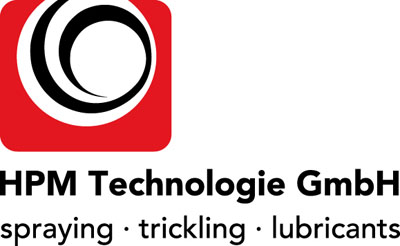
Minimum Quantity Lubrication (MQL)
The counterpart of flood lubrication is the minimum amount lubrication. Here the motto applies: "Less is more". An enormously reduced but targeted and precisely applied amount of cooling lubricants promises the best possible cooling at the lowest price.
Function
Minimum quantity lubrication works according to the minimum economic principle: achieve the maximum yield with minimal use. The precise use of the smallest amounts of cooling lubricants is called minimum quantity lubrication, MQL or MMKS.
With the help of compressed air, which is fed into a dosing system, fog (aerosol) is created by the collision of air and cooling lubricant. This mist, which often contains lubricant below 50 ml/h, is precisely applied to the working place between the tool cutting edge and the workpiece by an output device, for example, a spray head.
The fields of application of MMS are numerous: drilling, turning, milling, punching, forming, engraving, to name just a few of the almost limitless number of processes.
In contrast to flood lubrication, no circulation system is required, as the aerosol evaporates and does not need to be absorbed. However, if larger quantities of lubricant are sprayed as aerosols, consideration should be given to an appropriate suction system and fresh air supply. In most cases, such a suction system is required, but not!
Cleaning
Due to the low use of cooling lubricant, workpieces and machines remain clean and the resulting chips remain almost dry. This effect can be enhanced by choosing an evaporating lubricant. This eliminates the need for the annoying and time-consuming cleaning of the workpiece and machine with toxic chemicals.
Benefits
With optimized processes, longer service life is to be expected and in individual cases the process duration can even be reduced by up to 30% with optimal processes. An enormous cost saving due to small quantities of cooling lubricant, as well as cheaper storage and transport costs, as fewer containers are required. No costs for pumps, filter and recycling systems and their operation.
No waiting times, as the machine cleaning and the washing/drying of the workpieces are no longer necessary. The underestimated costs of disposing of the cooling lubricant are also greatly reduced or eliminated. Hidden costs for cleaning agents are also eliminated and occupational safety is drastically increased due to a dry working environment.
The continuous variable costs of an MMS system are caused by liquid and compressed air.
Function
Minimum quantity lubrication works according to the minimum economic principle: achieve the maximum yield with minimal use. The precise use of the smallest amounts of cooling lubricants is called minimum quantity lubrication, MQL or MMKS.
With the help of compressed air, which is fed into a dosing system, fog (aerosol) is created by the collision of air and cooling lubricant. This mist, which often contains lubricant below 50 ml/h, is precisely applied to the working place between the tool cutting edge and the workpiece by an output device, for example, a spray head.
The fields of application of MMS are numerous: drilling, turning, milling, punching, forming, engraving, to name just a few of the almost limitless number of processes.
In contrast to flood lubrication, no circulation system is required, as the aerosol evaporates and does not need to be absorbed. However, if larger quantities of lubricant are sprayed as aerosols, consideration should be given to an appropriate suction system and fresh air supply. In most cases, such a suction system is required, but not!
Cleaning
Due to the low use of cooling lubricant, workpieces and machines remain clean and the resulting chips remain almost dry. This effect can be enhanced by choosing an evaporating lubricant. This eliminates the need for the annoying and time-consuming cleaning of the workpiece and machine with toxic chemicals.
Benefits
With optimized processes, longer service life is to be expected and in individual cases the process duration can even be reduced by up to 30% with optimal processes. An enormous cost saving due to small quantities of cooling lubricant, as well as cheaper storage and transport costs, as fewer containers are required. No costs for pumps, filter and recycling systems and their operation.
No waiting times, as the machine cleaning and the washing/drying of the workpieces are no longer necessary. The underestimated costs of disposing of the cooling lubricant are also greatly reduced or eliminated. Hidden costs for cleaning agents are also eliminated and occupational safety is drastically increased due to a dry working environment.
The continuous variable costs of an MMS system are caused by liquid and compressed air.
News images
